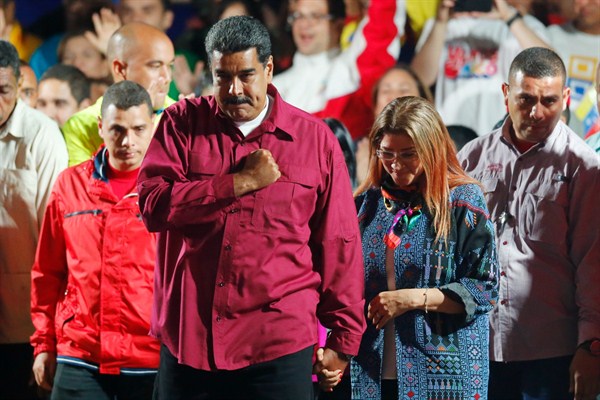There was never any doubt about who would win Sunday’s presidential election in Venezuela. The lead-up was so patently undemocratic that even before the vote took place, the results were rejected as illegitimate by a large number of countries, including the United States, Canada, the entire European Union and a dozen of Venezuela’s neighbors in Latin America. That, however, was hardly the end of the challenge for the international community and, more crucially, for Latin American countries growing more worried about the impact of Venezuela’s social and economic collapse on them.
The aftermath of the election has unleashed a torrent of diplomatic activity in the region as a bloc of Latin American countries ponder the daunting question of how to help the beleaguered Venezuelan people dislodge a government that has brought a multiplicity of maladies—from scarcity of every conceivable consumer product, including food and medicines, to rampant crime, economic depression and epic levels of inflation.
In the early days of socialist rule in Venezuela, when Hugo Chavez electrified Latin America’s left with his “21st-century socialism,” many in the Americas viewed Chavismo as a threat to the status quo. He inspired leftist leaders who started taking power in democratic elections, and he backed Colombia’s Marxist guerrillas who were still trying to topple the government. But Venezuela’s socialist experiment has turned into a spectacular disaster, propelling the retreat of Latin America’s so-called pink tide.

